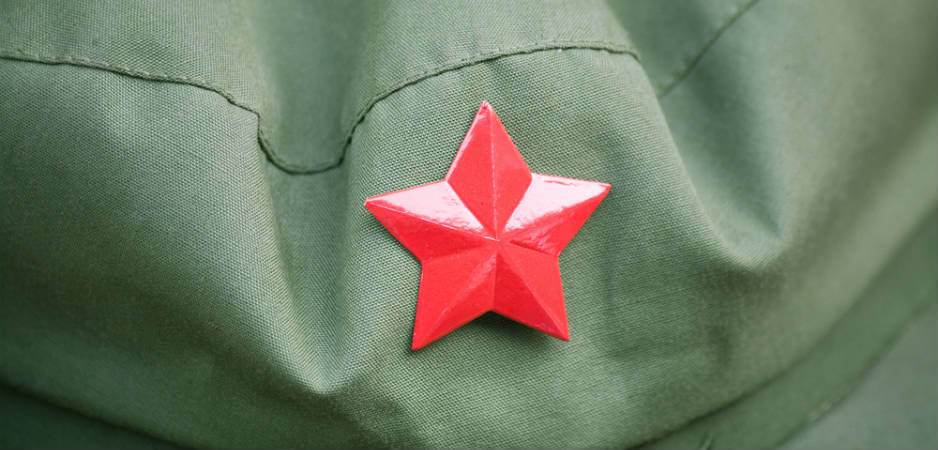The People’s Liberation Army has proved to be an effective tool by which to change perceptions about China’s role in the world.
China aspires for global leadership, but its intentions have often been undercut by its own reputation. Mercantilist, free-rider and, more recently, aggressive are a few of the labels that have been accurately used to describe Chinese foreign policy. Beijing, however, is doing all it can to counter these descriptors by using its power to reshape perceptions. One method used by the Chinese state to increasing effect is the deployment of People’s Liberation Army (PLA) units for missions relating to peacekeeping, humanitarian assistance/disaster relief (HADR) and noncombatant evacuation operations (NEO). Such operations, sometimes referred to under the term Military Operations Other than War (MOOTW), present the PLA, and by extension China itself, as a responsible global actor. In truth, the criticisms of China’s foreign policy remain accurate, but the PLA has proven to be an effective tool by which to change perceptions about China’s role in the world.
According to a United States Institute for Peace report, China contributes more troops to UN peacekeeping missions than any other Security Council member state and is a leading financier of United Nations Peacekeeping Operations (UNPKO). The same report detailed that China finds UN PKO operations a useful means to enhance the operational capacity of PLA units while also indirectly protecting Chinese national interests within and in proximity to conflict zones. PKO participation assisted in spreading China’s influence within the United Nations and enhancing its reputation among the other primary contributors to PKO around the world. These operations also have helped to improve China’s overall reputation throughout the world, particularly in developing states.
In 2014, the PLA sent a battalion of the troops to South Sudan for civilian protection-related missions. This was a progression from a major contribution of peacekeepers to Mali in 2013, which was Beijing’s most wide-ranging contribution ever. China’s interests in the Sudanese crisis stems back over a decade to the time when Darfur human rights violations were gaining international attention and the civil conflict between Khartoum and southern-based rebels was intensifying. A deal between the state-owned China National Petroleum Corporation and the Sudanese government brought Khartoum and Beijing closer together and tied China’s national interests to the stability of Sudan.
According to an International Crisis Group report, China’s engagement with Sudan created a complication for its long-standing principle of non-interference in the affairs of other sovereign states. Negative international attention regarding the actions of the Sudanese government undercut Beijing’s messaging and the overall instability of the country put portions of China’s economic interests at risk. Partially because of instability in Sudan, the Chinese state decided on an adjustment to its long standing policy that declares foreign interference acceptable in cases where national interests are at stake, paving an easier rode for PKO going forward.
China’s military is also intensifying its capability to conduct HADR operations, which present an impactful way by which a country can gain international goodwill and, as such, it is a focus area around which military cooperation has matured. The PLA has invested in joint training operations on HADR with the Association of Southeast Asian Nations (ASEAN), Australia and the United States, among others. The PLA has stood up training units for quick deployment under emergency situations, similar to units used by the United States military during natural disasters or humanitarian crises. PLA’s humanitarian operations have had increasing impact in the Asia Pacific. PLA troops, viewed by many countries in the Asia Pacific as the face of China’s increasingly aggressive regional policy, can be easily portrayed throughout the media as an institution committed to stability and humanitarian relief.
China’s soon to be active dual use military facility in Djibouti — its first overseas military base — will be a transit point for HADR operations throughout Africa and the Middle East. The base’s primary function is to facilitate People’s Liberation Army Navy (PLAN) vessels operating in the Western Indian Ocean, but Beijing consistently points out that the base is intended to serve multilateral and humanitarian aims. As such, China argues that the base is not evidence of China’s growing military strength and a tool to reshape the regional security order. Of course, the western Indian Ocean region, encompassing both the Gulf and East Africa, is important for China’s One Belt, One Road (OBOR) initiative.
The project is a major vision for connecting Eurasia and much of Africa to China, and such intensive investment will inevitably have security dimensions. A base in the region can assist China’s future security dilemmas, but that is not the frame that Beijing wants to become solidified.
PLA evacuation capabilities were proven in Libya and Yemen, where thousands of Chinese nationals working in both countries were evacuated because of emerging warzones. In Libya, it was the start of the civil war in March 2011 that required the PLA to evacuate approximately 35,000 Chinese nationals. It was the largest PLA-conducted NEO in history. A significant amount of sea, air and land military assets were used to conduct the overseas operation, including the contracting of private ships to ease evacuee overflow. In 2015, the PLAN evacuated about 800 Chinese citizens out of Yemen shortly after conflict arose. The Yemen evacuation was not anywhere near the size and scope of the Libyan operation, but the PLA, with assistance from other government agencies, was able to quickly direct aircraft to Yemen with little strain on the PLA and not complicate the international effort to evacuate other foreign nationals.
The PLA’s success in evacuating Chinese nationals out of Libya and Yemen was rightfully praised by Chinese citizens and many throughout the international community. These operations proved that the PLA is capable of conducting evacuations far from China’s shores, but it should be remembered that this ability has value beyond evacuation operations. The PLA, long a force capable of only homeland defense, had achieved the operational sophistication and tactical capability to engage in rapid deployment on a global scale. Observers around the world took note that the PLA’s abilities had become rough equivalents of leading militaries in North America and Europe.
The PLA’s capabilities in peacekeeping, humanitarian and disaster relief and noncombatant evacuation have clearly matured over the past decade. Countries around the world now have evidence of how China can effectively contribute to humanitarian efforts that require the use of military units. Images of Chinese soldiers keeping the peace in warzones, providing relief during crises and evacuating its citizens when they are in danger have provided a narrative that shows China in a positive light.
Fewer people in the developing world are fearful of China’s foreign policy objectives, and the PLA’s efforts have contributed to this changed perception. Yet, despite its humanitarian contributions, China’s foreign policy remains problematic. Humanitarian concerns, regardless of the narrative they create, are not a priority for the PLA. These missions always have a public relations component attached to them. Given the changing reputation of China and PLA globally, it seems the PR campaign is working.
*[Note: The views expressed in this article are the authors’ alone and do not represent the official policy or position of the National Defense University, the Department of Defense or the US government.]
The views expressed in this article are the author’s own and do not necessarily reflect Fair Observer’s editorial policy.
Photo Credit: Feng Yu / Shutterstock.com
Support Fair Observer
We rely on your support for our independence, diversity and quality.
For more than 10 years, Fair Observer has been free, fair and independent. No billionaire owns us, no advertisers control us. We are a reader-supported nonprofit. Unlike many other publications, we keep our content free for readers regardless of where they live or whether they can afford to pay. We have no paywalls and no ads.
In the post-truth era of fake news, echo chambers and filter bubbles, we publish a plurality of perspectives from around the world. Anyone can publish with us, but everyone goes through a rigorous editorial process. So, you get fact-checked, well-reasoned content instead of noise.
We publish 2,500+ voices from 90+ countries. We also conduct education and training programs
on subjects ranging from digital media and journalism to writing and critical thinking. This
doesn’t come cheap. Servers, editors, trainers and web developers cost
money.
Please consider supporting us on a regular basis as a recurring donor or a
sustaining member.
Will you support FO’s journalism?
We rely on your support for our independence, diversity and quality.






